


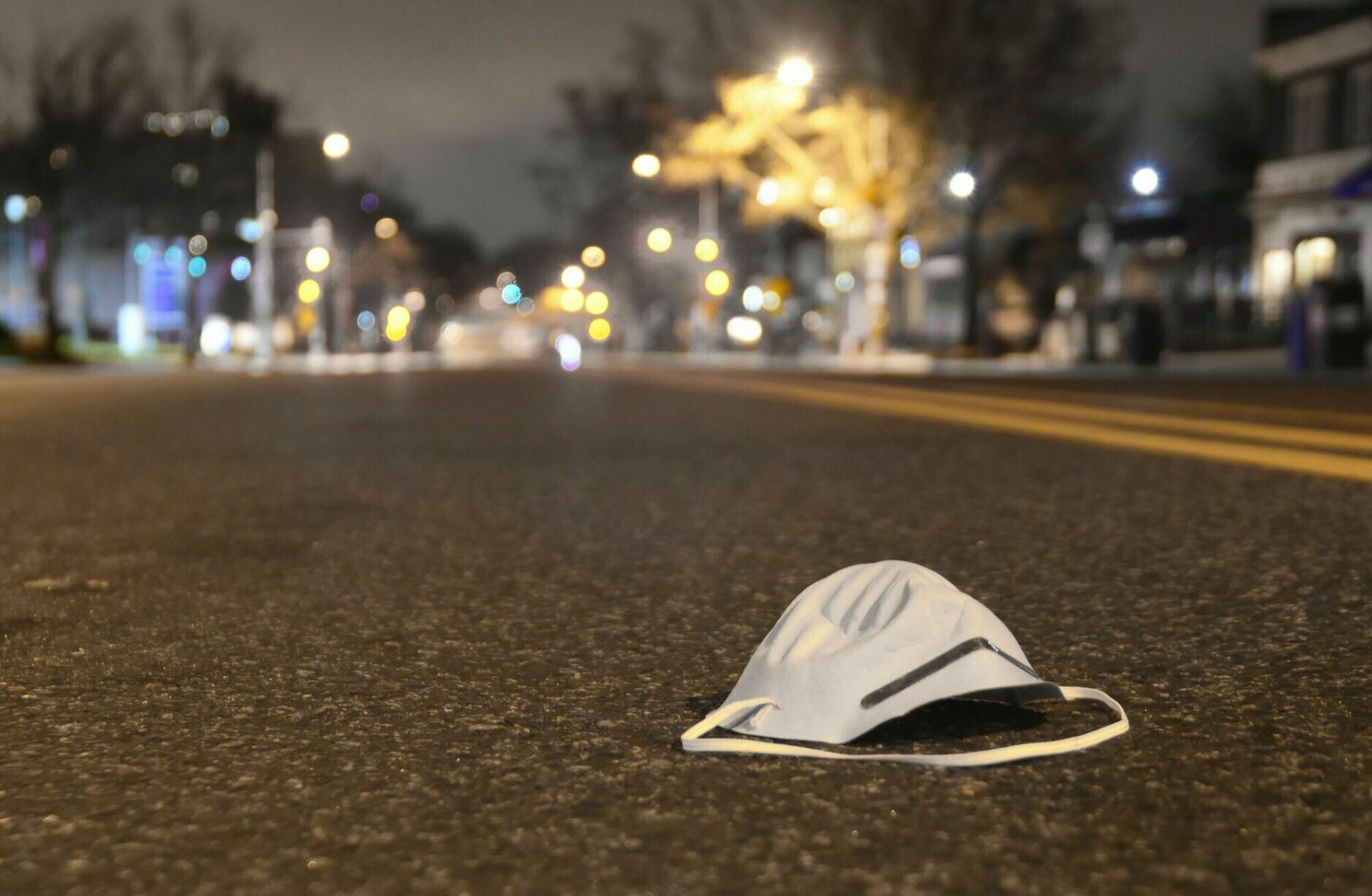
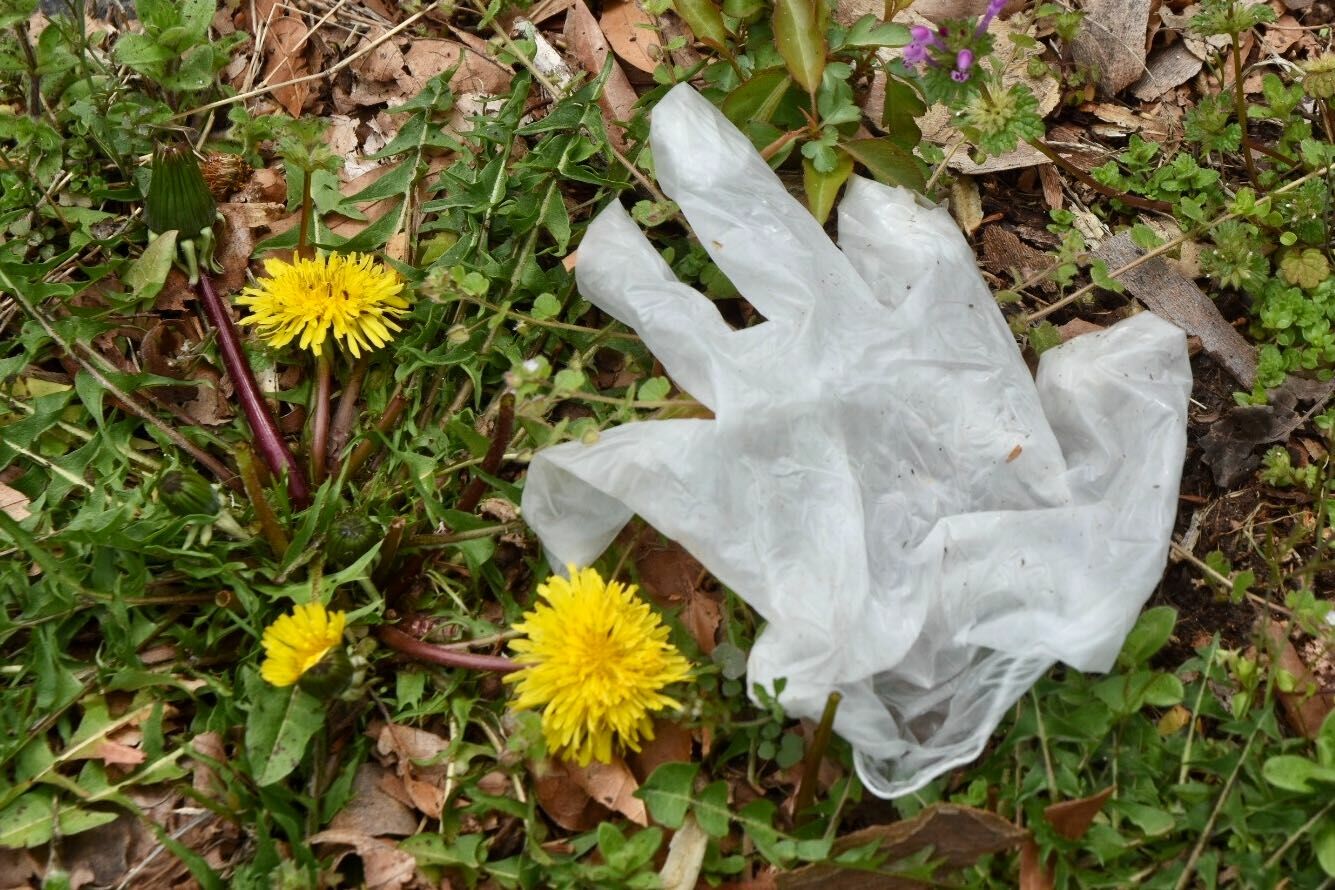
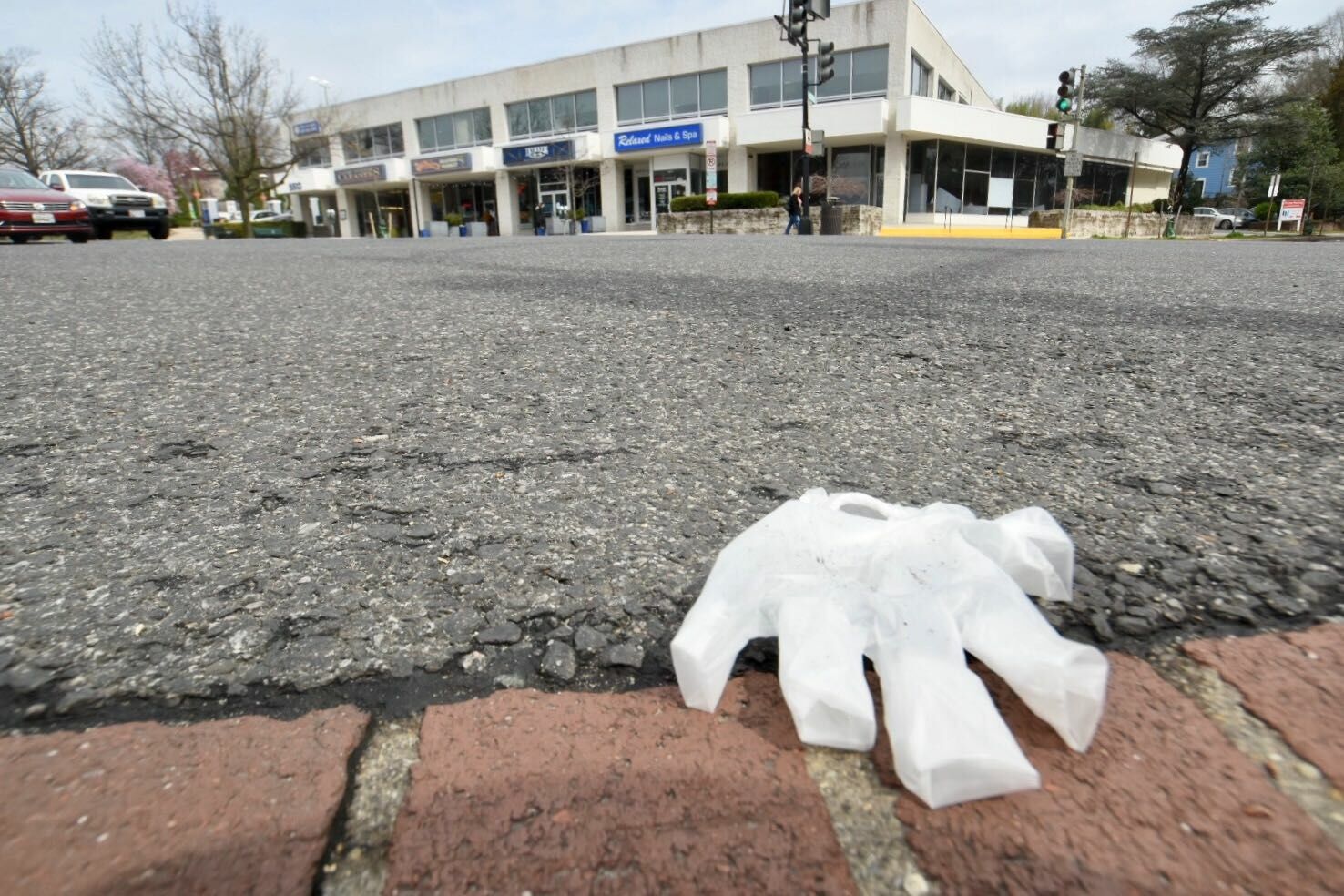
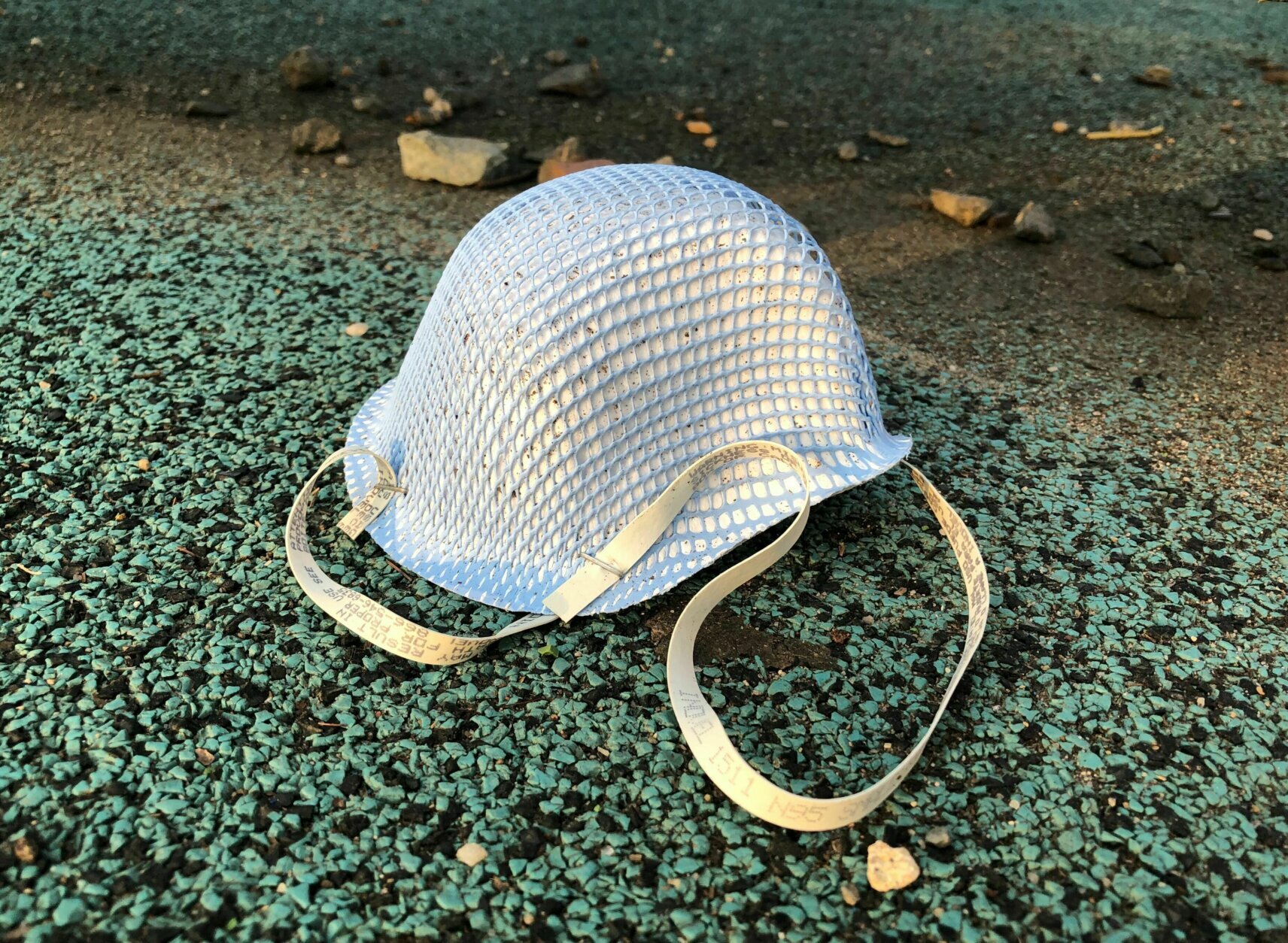
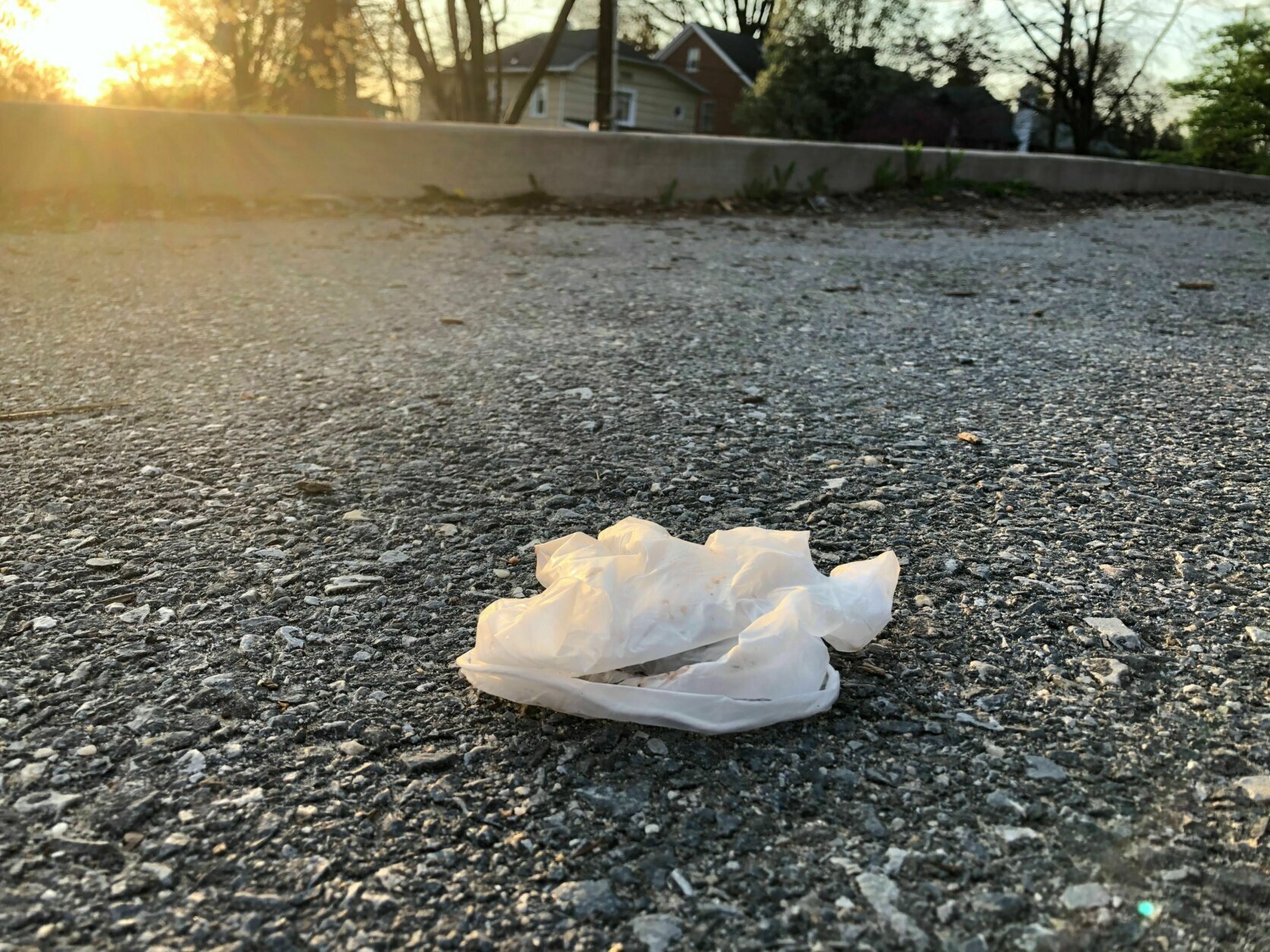
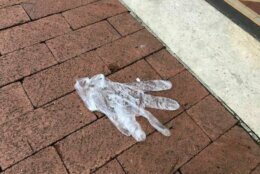

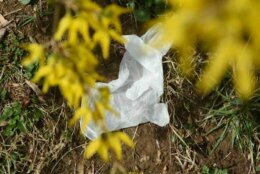
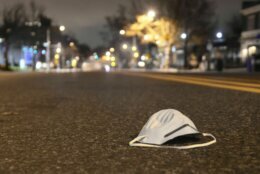

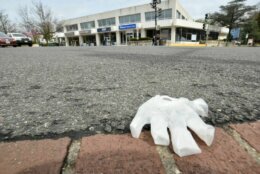
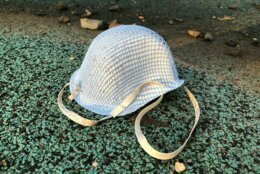
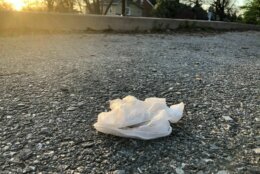
Sales of personal protective equipment products — such as masks and disposable gloves — are on the rise. Along with their rise in popularity is a rise in the number of these items carelessly discarded on streets and sidewalks.
Law enforcement and other officials have said that people who are not properly discarding those products when they’re done with them are creating an unnecessary risk of exposure for those tasked with cleaning up the litter, as well as the public.
The problem is at its worst outside major supermarkets and big-box retailers, where soiled gloves, masks and wipes dot a number of parking lots.
The World Health Organization indicates that strains of the coronavirus — including early studies of the new virus that causes COVID-19 — can remain infectious on surfaces for several hours and up to several days, depending on the environmental conditions.
Guidelines for use of PPE indicate most items are designed to be for “single-use only,” which means it can only be used once before it should be discarded.
The items should be removed — taking care to not have any of the exposed items touch body parts or other surfaces — and promptly disposed in a proper waste bin dedicated only to cleaning waste.
When it comes to disinfecting wipes, experts stress they should not be flushed in a toilet, even if the manufacturer has labeled it as being OK to do so. The wipes can add stress to overworked municipal sewer systems, as well as pipes inside homes and businesses.
Health officials said the best way to prevent contamination is to regularly and thoroughly wash hands. People who continue to wear gloves and masks for protection need to take responsibility for their proper disposal.
- Sign up for news alerts from WTOP
- DC, Maryland and Virginia face medical supply shortfall
- White House moves toward promoting face masks to fight virus
- DC-area fire and police departments make coronavirus contingency plans
- Why local grocery workers say they should be classified as ‘first responders’
- Coronavirus test results in D.C., Maryland and Virginia
- Coronavirus FAQ: What you need to know







